Search Images
Browse Content (p. 844)
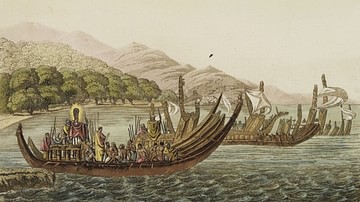
Image
Tahitian Double-Hulled War Canoe
Tahitian Double-Hulled War Canoe or Pahi by Giulio Ferrario (1767-1847 CE). From an engraving published in 1827 CE.
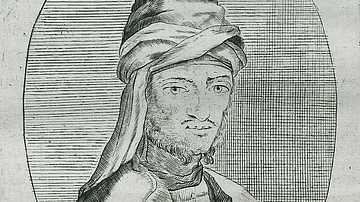
Image
Antonio I Acciaioli
Antonio I Acciaioli (r. 1403-1435 CE), Duke of Athens.
Illustration from Atene Attica Descritta da suoi Principii sino all’acquisto fatto dall’Armi Venete nel 1687…, Venice, Antonio Bortoli, 1695 edition, by Francesco Fanelli
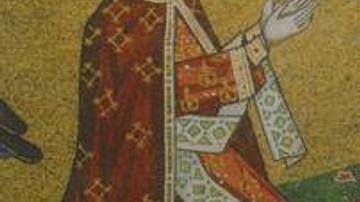
Image
Frederick III of Sicily
Frederick III of Sicily (r. 1295-1337 CE)
14th-century CE mosaic in the Messina Cathedral.

Image
Coin of Guy II de la Roche
Silver denier of Guy II de la Roche (r. 1287-1308 CE), Duke of Athens. Minted in Thebes, Duchy of Athens.
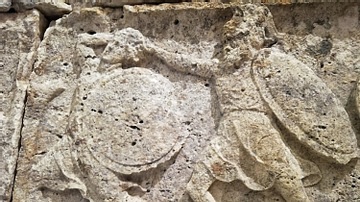
Image
Heroon of Trysa - Detail
Detail of battling warriors from the west wall of the Heroon of Trysa frieze in the Ephesos Museum, Vienna. The Heroon of Trysa dates to 380 BCE and was discovered in 1841 CE by an Austrian school teacher, Julius August Schönborn. A heroön...
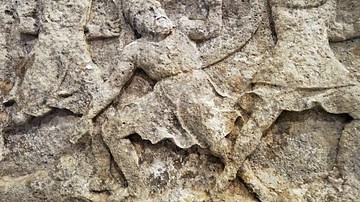
Image
Seashore Battle, Heroon of Trysa
Detail of a seashore battle scene from the west wall of the Heroon of Trysa in the Ephesos Museum, Vienna. The Heroon of Trysa dates to 380 BCE. A heroön is defined as a shrine constructed in the Classical world over and around the tomb...
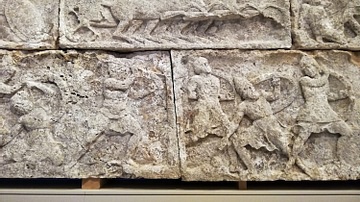
Image
Battle Scene from the Heroon of Trysa
Detail of a seashore battle scene from the west wall of the Heroon of Trysa in the Ephesos Museum, Vienna. The Heroon of Trysa is an ancient Lycian tomb dating to 380 BCE. Trysa is a site in southwest Turkey.
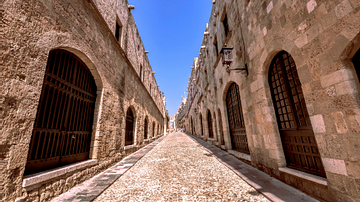
Image
The Street of Knights, Rhodes
The living quarters of the holy warriors, commonly known as the Knights Hospitaller, line the Street of Knights in the old town of Rhodes.
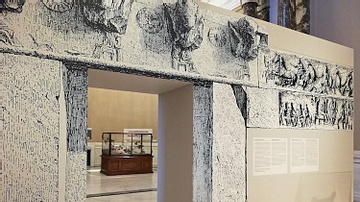
Image
Reconstruction of the Entrance to the Heroon of Trysa
Reconstruction of the entrance to the Heroon of Trysa at the Ephesos Museum in Vienna, Austria. The Heroon is an ancient tomb dating to 380 BCE which was discover in 1841 CE in Lycia, in southwest Turkey.
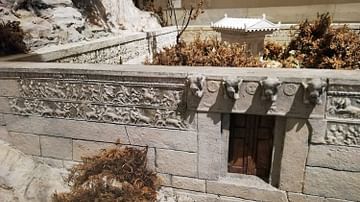
Image
Model of the Heroon of Trysa
The Heroon of Trysa as it appeared in 1841 CE; a model of the Lycian site in the Ephesus Museum, Vienna, Austria. The Heroon of Trysa is the modern name for an ancient tomb, built around 380 BCE in Trysa, in ancient Lycia in southwest Turkey...